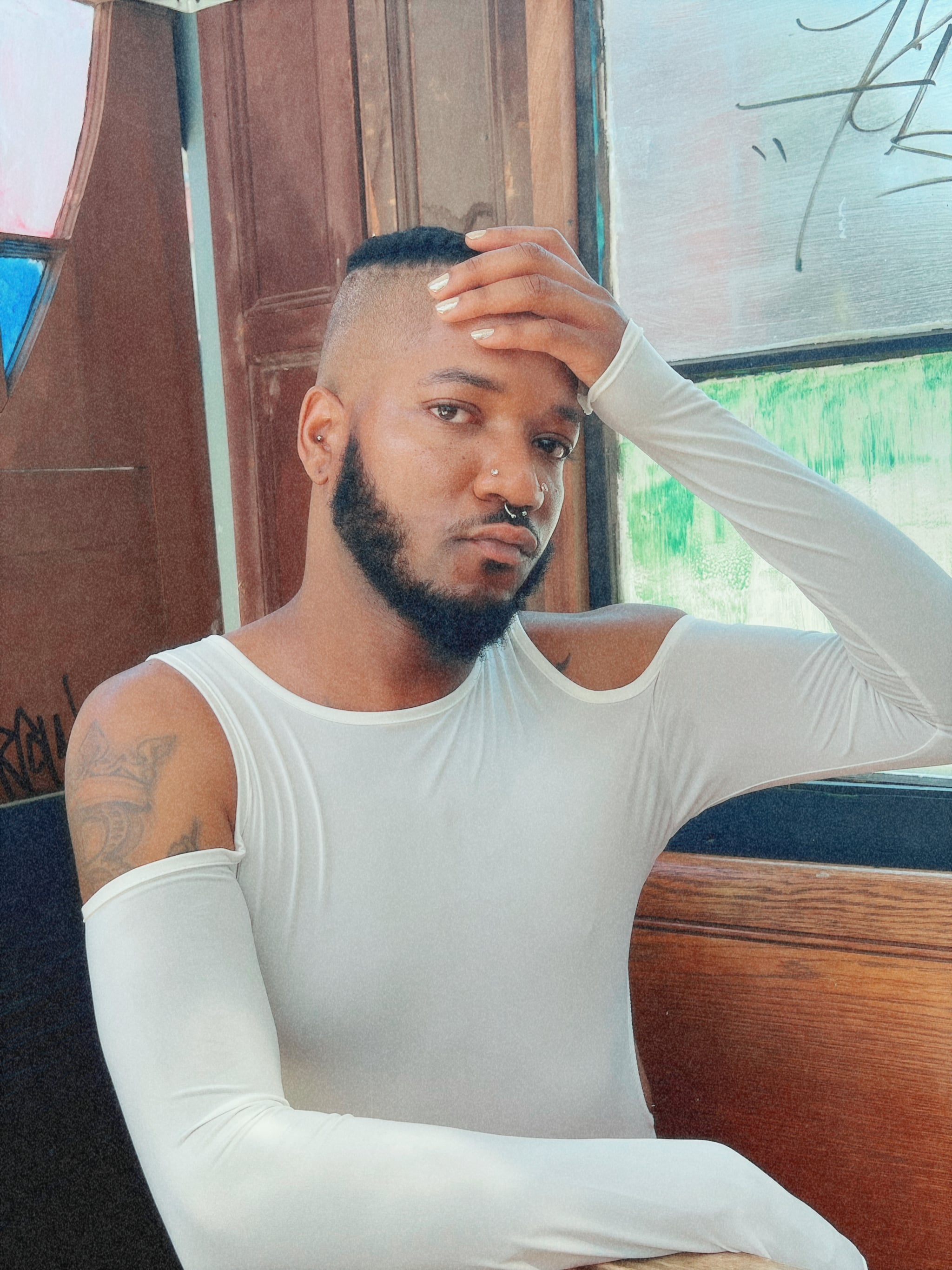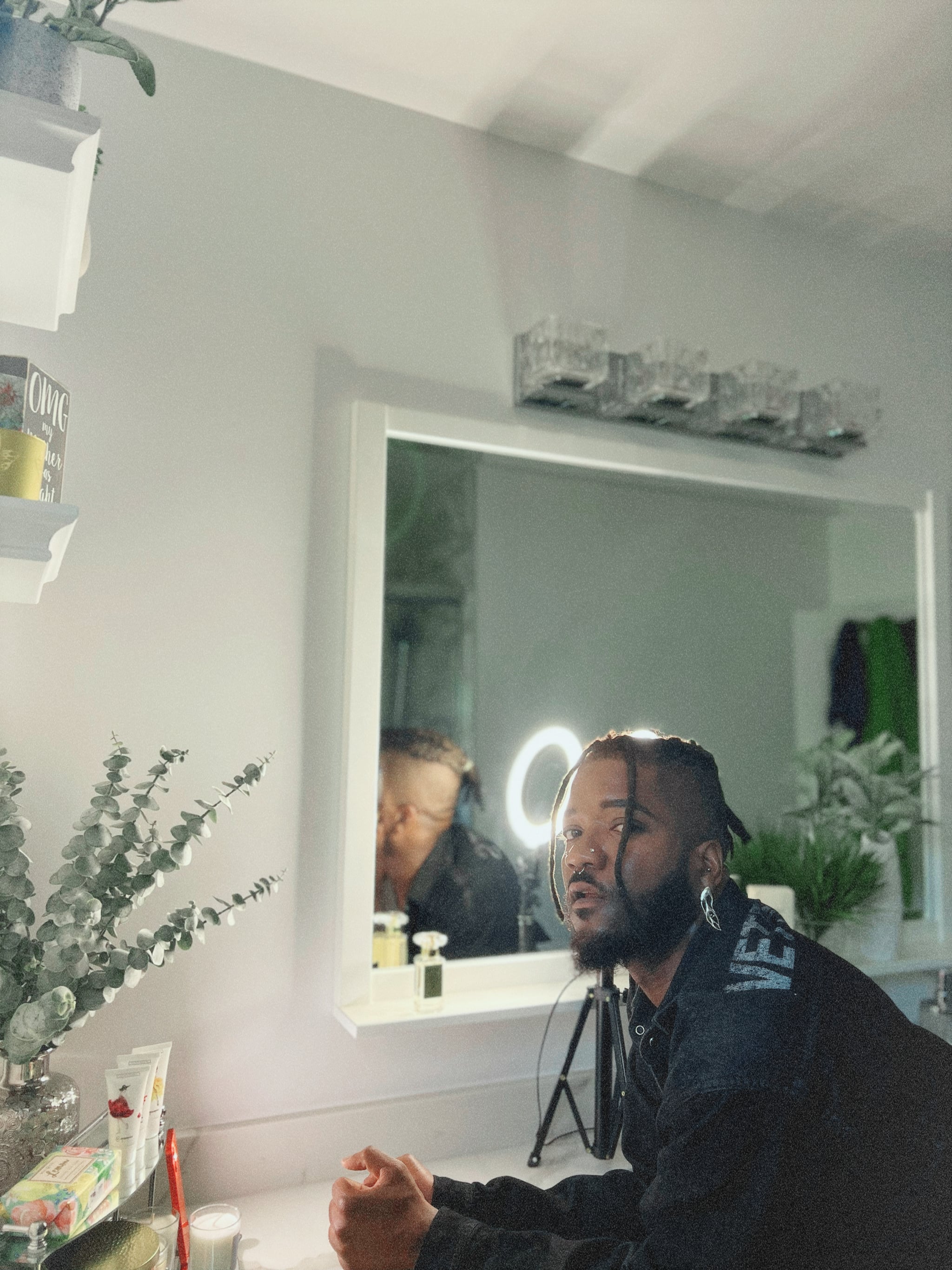This Aesthetician Is Tired of Black Men Being Left Out of the Skin-Care Industry

Too often, the best beauty stories go Untold, solely based on a person’s skin color, religion, gender expression, disability, or socioeconomic status. Here, we’re passing the mic to some of the most ambitious and talented voices in the industry, so they can share, in their own words, the remarkable story of how they came to be — and how they’re using beauty to change the world for the better. Up next: Bryce Anthony, a New York City-based licensed aesthetician hoping to carve out space for other Black men in the skin-care industry.
My background was in fashion originally. When I was fresh out of college living in LA, my dream was to be a fashion designer, but that fizzled out really quickly. I was trying to figure out what I wanted to do in my life. I moved to New York, still trying to make it work, and I was successful at it — I did some great, amazing things — but after a while, things hit a standstill. It wasn’t really satisfying anymore.
If you would’ve told me five years ago that I’d be where I am, doing what I’m doing, I wouldn’t have believed you. I never saw myself doing the type of work that I’m doing now. But I feel like everything in my journey has led me to this moment. I had always been into skin care and self-care; I just never really considered making a career out of it, or even thought that it was possible for someone like myself. I feel like the beauty industry up until that point had mostly catered to women, so I just never felt like I was the target market.
Shortly after moving to New York, I made friends with a girl who worked for The Ordinary. This was in 2017, around the time when it was really hot and had just launched. It had a cult following — I was definitely part of the cult. I always have to give credit to it for that whole chapter of my life; it really got me obsessed with skin care and made me want to learn more about the industry.
I worked for The Ordinary for about two years, learning about ingredients. It really inspired me. That’s when I decided I wanted to take things further and learn as much as I could. I decided to go to school to get my license to be an aesthetician. Still, at that time, I never had any intention of working at a spa — I just wanted the authority to be able to speak about these things.
Once I finished school, I thought the sky’s the limit; I could do anything. But mind you, this was January 2020, so right when I graduated, the world shut down with the pandemic. I started panicking. I was like, “This is awful — I literally touch people’s faces for a living. How am I going to make this work?” Eventually, it led me to start doing things digitally.
I started offering virtual consultations during the pandemic, and that turned out to be extremely lucrative for me. I was very surprised at how well it worked for me. Three months later, I started getting these emails from people saying, “Thank you so much, you changed my life,” “I never thought I could have skin like this,” and I was like, “OK, something is happening here.”
In that moment, I knew this was what I was supposed to be doing. I’ve always been drawn to making people feel good about themselves, whether it’s through skin care or through fashion. I’ve just always been drawn to wanting to help people feel better about themselves.
Myself and my business partner have a space in Williamsburg that we’re turning into our spa. It’s a work in progress; a labor of love. We’ve been working on it for about a year now. As I said, I never really had intentions to work in a spa — that was never really my plan — but we both have the same values when it comes to skin care. We really like to focus on skin of color — it’s my specialty. There aren’t a lot of spas and aestheticians that really specialize in it, and Black and brown skin takes a different level of care.
We have to deal with issues like scarring and hyperpigmentation. The average spa probably wouldn’t really take the time to address these issues on the level that we do. We wanted our spa to be somewhere where we could see ourselves and just make people feel comfortable. So, we specialize in inflammatory conditions, whether it’s acne, melasma, eczema — any type of inflammatory condition that affects skin of color.
The beauty industry as we know it today has made a lot of progress, but there’s still such a long way to go. As diverse as it is becoming, unfortunately, it’s still a white, female-dominated field for the most part. That’s something that’s always stuck out to me and motivated me. When I was in school and in a treatment room, I was the only guy and one of the only few Black people. They didn’t even show us how to treat skin of color. So, I feel like I was put here to leave my mark and carve out space for myself. It’s a passion of mine.
I’ve said this from the beginning: us men, we have skin just like everyone else, and we need to take care of our skin. We need to do preventative things, like exfoliating, and using retinol, and getting Botox. That’s my mission right now: to make space for myself and other young Black boys in this industry.
I have this fire inside of me. Even when things seem impossible or they feel like a stretch, if you put your mind to it and you really commit yourself, you’d be surprised at the outcome — I’m living proof of that. I want to inspire a new generation of young healthcare, skin-care professionals of color.
Source: Read Full Article

